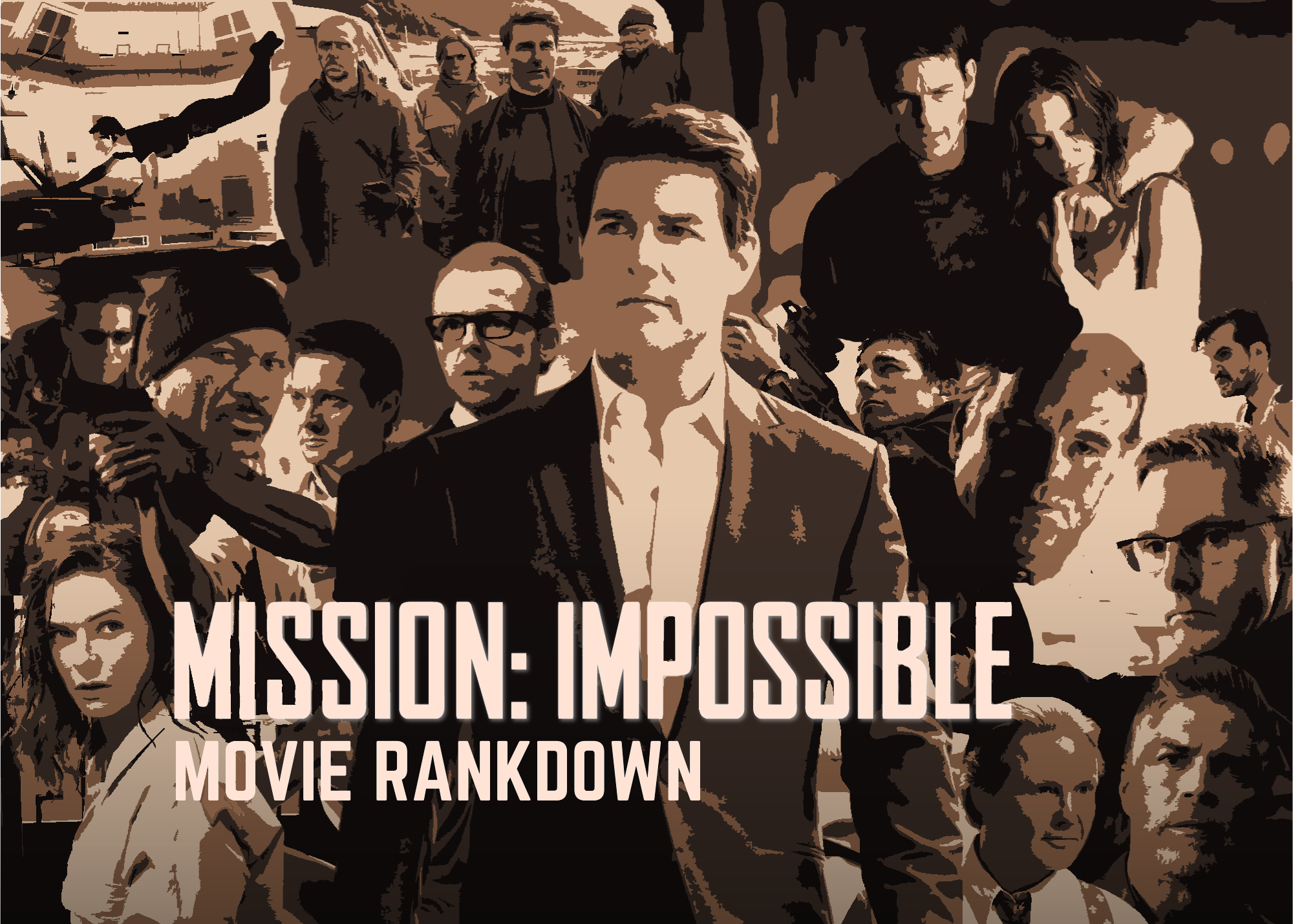"Black Panther: Wakanda Forever" Review: A Parade of Hits and Misses
Shuri proves a compelling replacement, but "Wakanda Forever" proves a poorly-executed, though oddly enjoyable, sequel.
ModernOn August 28, 2020, Chadwick Boseman died at his home in Los Angeles due to complications with colon cancer. He had gotten diagnosed with the disease four years prior and headlined Black Panther, Marvel’s first film with a Black director and predominantly Black cast, while struggling with his illness.
Black Panther was seen by many as a watershed cultural moment, and Boseman’s King T’Challa the spearheader of a new era in blockbuster entertainment. Hollywood finally realized that Black stories with Black characters were financially viable and cinematic diversity was something to pursue. The world is too easily distracted for anything like that to take hold and make a lasting impression, but the idea held value.
Boseman’s death thus left Marvel with a tricky dilemma. The Black Panther is a cash cow that no franchise would discard, so the show must go on. The question was simple: how do we go from one lead to another? The answer was much more complicated.
The MCU enters Wakanda Forever facing a unique challenge, but despite the natural impediments Boseman’s tragic passing created, it is a challenge predominantly of the franchise’s making. Transitioning from a beloved anchor is never easy, but the only logical heir to the throne is T’Challa’s sister, Shuri, a divisive character among the fanbase. For starters, the princesses’ time in the franchise has been rife with cringe.

Later, when Endgame director Joe Russo half-heartedly pandered to modern “feminism” by declaring her the “smartest person in the MCU,” the fans went into a tizzy. The intention behind the declaration was insultingly transparent, even more so now, since the franchise is overflowing with mundane female teenagers.
The more damning element was its audience's ignorance, regardless of how many neckbeards bellowed to the heavens at the notion of a woman being somehow superior to a man. After all, how many viewers are familiar with nanotechnology, quantum technology, or any other kind of technology save the one they illegally stare at while driving? What does it mean to them, or at all, that Shuri is “smartest?”
As such, Marvel boxed itself into a corner: how does it take a character they’ve accidentally begged us to dislike and make her a compelling heir to one of the franchise’s most iconic heroes?
Amazingly, for a series so dependent on a very tired formula, it does so rather well.
The MCU has earned its greatest successes when it dials back on the endless quipping, a device that was charming in 2008’s Iron Man but is significantly less so nearly 15 years later. Until Wakanda Forever, Shuri spent her time in the franchise as a walking meme factory, but now that her brother’s death has left the kingdom “unprotected,” she must grapple with loss while ushering in a new era in Wakanda. Life need not be a storm cloud forever, but if Wakanda is to be forever itself, she must come into her own, and Wakanda Forever is a better film for it.
Of course, much of that is by accident. Marvel neutered T’Challa. The franchise was not going to risk controversy by having their first Black superhero be anything but saintly. He was a man of honor and nobility; even in Civil War, as he seeks revenge for his father’s death, his motives inspire empathy. Who would not seek vengeance for their family? Ultimately, he sees the truth, makes the noble choice, and trudges through Black Panther more as a cinematic Messiah than an actual human being. By making Shuri everything she was, they must write her to develop into something else entirely, but as with all change, a piece of the past remains. She isn’t dropping Internet memes, sassing world-renowned scientists, or lamenting her absence at Coachella, but if she didn’t begin as righteous as her late brother, she cannot become so over the course of a single movie, or at all.
It also helps that she’s a woman. It is the nature of writers, male ones in particular, to explore emotion through brooding, but women cannot brood. Men are reactive, always responding to immediate stimuli and wreaking havoc based on momentary feelings. Women are more cerebral, tying the generality of their character to their experiences; they do not mope or slink back into a recliner, drinking beers and bemoaning their station. Shuri cannot be what the MCU would have her become if she were male, so Marvel must deviate from its formula to offer something new. Unfortunately, it only goes so far with the “new” and thus relies on old, borrowed, and blue… literally.
In the depths of the sea, a vast army of blue people lives in Talokan, a hundreds-year-old city ravaged by disease when colonizers invaded the Yucatán Peninsula in the mid-16th century. If you thought you were watching Avatar, you’re not, though it feels that way every time one such individual pops up on screen.

The franchise wants to spice things up with a new breed of villain, forgoing advanced technology for a blend of historical fantasy, but the similarities with the world’s highest-grossing movie halts the effort. It doesn’t help that their God, Namor, has a rudimentary origin story built on blueprint tragedy. Among the lack of imagination, one would hope for at least a capitalization on the underwater action. Sadly, in a movie this long, such slow-paced activity takes an already slow film and brings it to a screeching halt.
As for the old, vengeance and its ramifications is played out, not only for being the introductory thematic arc for T’Challa but because the lesson is always the same: boo vengeance, yay… not vengeance?
Nuance is not the nature of superhero films, but if ever the franchise was going to prove it had guts, it was here. Life is chock-full of complex realities, none more controversial than the most damning truth known to man: what is something for one is something different to another. Shuri could kill Namor and prove a point: others can see vengeance, that all-consuming toxin that corrupts the good and helps blossom the bad, but to her, it is justice. She has no cause to believe an alliance will hold. After all, the man she is dealing with has no nuance of his own; why should he? He’s been alive for nearly 500 years. At a certain point, you are who you are. Are we expected to believe that mercy will alter half a millennium of belief in favor of loose allegiance?
If even for a moment, Shuri must rule, which means making personal compromises that look ill-conceived from the outside but are necessary when examined. It is a fool’s dream to believe that everyone has the potential to change and begin anew. Idealism can work under the right circumstances, but in a movie dominated by grief, loss, and the complications of moving forward, banking your message on something so impractical and sugary rings hollow.
It’s a cop-out for a cop-out; the final battle’s poor conception borders on lunacy. Wakanda takes a tiny contingent of soldiers, sails them out to where their enemy is strongest, and plans to kidnap Namor to dehydrate him into submission. Talokan’s blue warriors are so overpowered to compensate for the childish aesthetic of their leader that the writers have no way to save Wakanda except for the last-second pact. Sure, the lack of tech forces the warring nations into legitimate combat, a sight for sore eyes. Alas, that does not distract from the manipulation of thematics, the hallmark of poor writing.
As for the borrowed, the MCU is such a rehash of itself that every installment now legitimizes itself by drawing from other entries.
Wakanda Forever’s bloated runtime is another exhibit in the prosecution’s case that the MCU takes itself too seriously; its delusions allow it to believe Wakanda Forever needs to be 161 minutes, but they are wrong. Yes, every entry is intended to build upon a dozen others, but patience has its limits. We don’t need Everett Ross, Valentina (two pointless characters in an already overstuffed franchise), or any involvement from the American government. We don’t need multiple conversations between M’Baku and Shuri about advice that never gets asked for or given or what to do about the big bad blue people threatening the known world. We don’t need another teenage girl, especially not one whose genius needs an entire Disney+ series to explore if it wants legitimization and whose role is to get established for future installments, distracting us from the actual narrative.
It’s a shame it lost its focus because the MCU has much to figure out with Shuri, even down to her suit. One would imagine a woman’s form would better show off the motion, but her action sequences look awkward and stilted. Regardless, the overarching issue is more a woman problem than anything else.
The narrative’s goals are unclear. Does it want to develop Riri, the wunderkind tech wiz, or flesh out Shuri as the new Black Panther? Does it want Angela Bassett’s Queen Ramonda to play a larger role or relegate her to a briefly developed side character whose death motivates the protagonist? Does it want Okoye and Nakia to become more fully-realized characters as they get pushed and pulled to and fro their past or have them around because they were there the first time?
The MCU does not trust its women. Tony Stark would never have a solo flick dominated by so many other characters, nor would Steve Rogers, Bruce Banner, Thor, or Peter Parker. It’s a shame. Chadwick Boseman’s death was a tragedy, but from that tragedy came an opportunity for triumph, a chance to do justice to what he helped usher in by passing the torch to someone able to carry it with dignity. Unfortunately, although Wakanda Forever is a more enjoyable watch than its predecessor, and they manage to develop Shuri into a hero with more substance than T’Challa ever had, the general confusion makes it impossible to quantify why that is the case. Hence, a review can only pick apart the ways it falls short and speak on its positives as one would an old baseball player whose stats disappoint but who your father swears was one of the best:
“You had to be there.”
.png)
63
Director - Ryan Coogler
Studio - Marvel Studios
Runtime - 161 minutes
Release Date - November 11, 2022
Cast:
Leticia Wright - Shuri
Tenoch Huerta - Namor
Angela Bassett - Queen Ramonda
Lupita Nyong’o - Nakia
Danai Gurira - General Okoye
Winston Duke - M’Baku
Dominique Thorne - Riri Williams
Martin Freeman - Everett Ross
Julia Louis-Dreyfus - Valentina Allegra de Fontaine
Editor - Kelley Dixon, Michael P. Shawver, Jennifer Lame
Cinematography - Autumn Durald Arkapaw
Screenplay - Ryan Coogler, Joe Robert Cole
Score - Ludwig Göransson

%20(13%20x%206%20in)%20(13%20x%204%20in).png)





































.png)






.png)